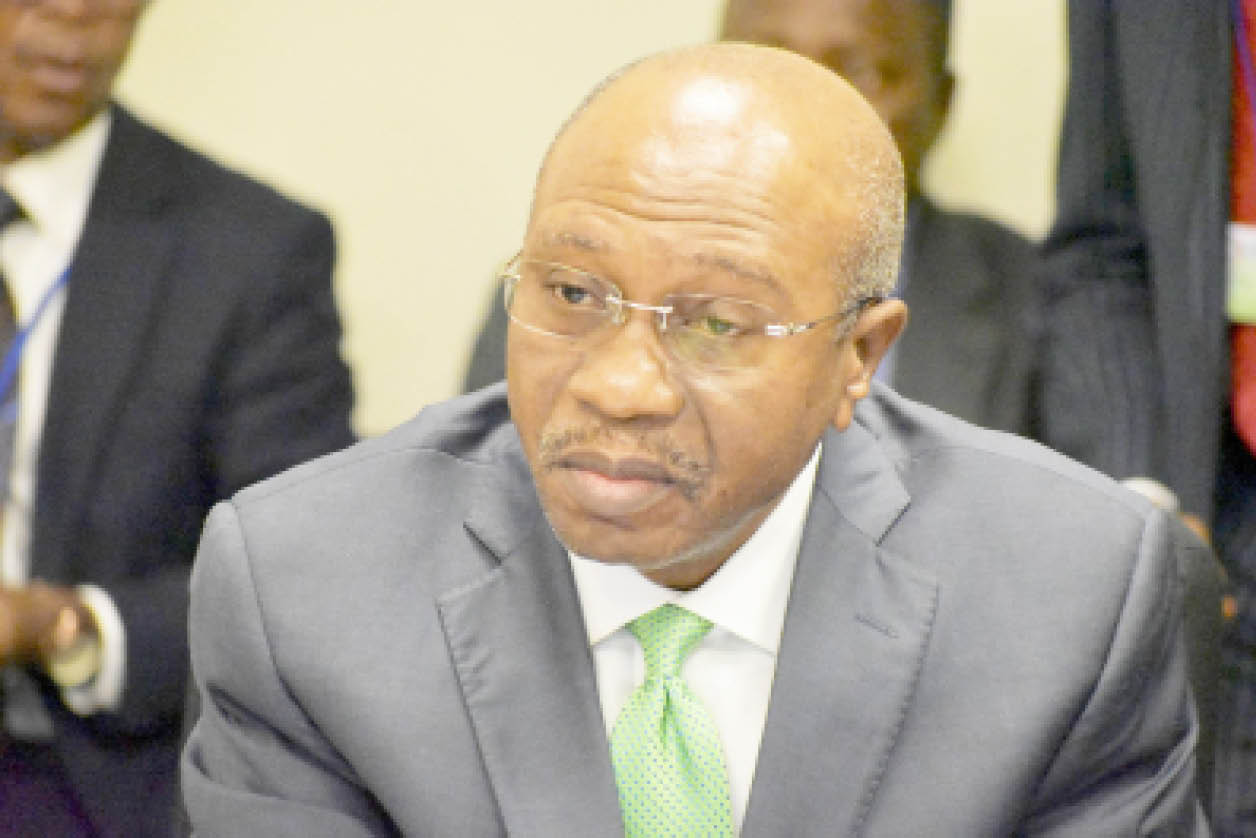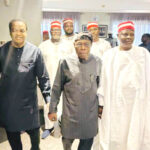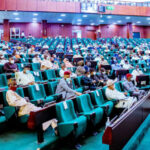Any regular reader of Nigerian newspapers in recent weeks would be forgiven to think that Mr Godwin Emefiele is a politician running for the presidency of Nigeria, rather than the sitting Governor of the Central Bank of Nigeria (CBN). Full-page newspaper adverts and news stories flood the dailies urging him to throw his hat into the ring and run for Nigeria’s highest political office.
So far, Mr Emefiele has not declared his intention one way or another. But in one of these adverts published in several newspapers including the Daily Trust on 15th February, the sponsors, under the name ‘Friends of Godwin Emefiele’ claimed to have met with Mr Emefiele and he had told them that he remains focused on supporting President Muhammadu Buhari’s economic recovery programme, that he does not lobby for high office and that since it is “God that anoints leaders, he will leave his faith [sic] firmly in the hands of God”. The advert then went on to extol Emefiele’s leadership qualities and achievements, including his work as CBN Governor, as part of his suitability for the job of Nigerian President.
Soldiers must return to barracks – CISLAC
Slain Ogun monarch’s family, community demand justice
Anyone familiar with Nigerian politics would have heard all of these from politicians who are serious about running for political office. And this is where the problem lies for the Central Bank and for Nigeria under the current circumstances. Mr Emefiele must either resign from office today and declare for politics or he must put a stop to the speculations by saying clearly and unambiguously that he would not run. Central banking and politics cannot mix, not even on the pages of newspapers, because their clear separation is not only important to effective economic management but also to democratic governance more broadly.
The scope of central banking has expanded considerably in the modern economy; so too have the organisational principles and legal mechanisms on which central banking operations are based. When they first evolved in 17th century Europe, central banks had the primary goal of guaranteeing the financial credibility and needs of their sovereign governments even though most of them were private entities at the time. But as national economies grew and became more sharply demarcated over the ensuing centuries, central banks assumed more public roles in response to the cyclic but persistent shocks to the economy.
In the new post-colonial and developing countries like Nigeria, central banks started life as national public entities with the mandate to ensure price stability through low inflation and beneficial exchange rates, at least, to the extent that the vagaries of the international monetary system would allow. Central banks are also now directly involved in the real economy to support objectives such as high employment and economic growth rates. They work to prevent financial crises and ensure the financial stability of the country by overseeing commercial banks and the whole national payments system and by serving as lender of last resort. Many, including Nigeria’s, also hold and manage huge portfolios of funds for their governments. In Nigeria, all of these key functions—and more—are contained in the CBN Act 2007 as the objectives of central banking in the country.
Clearly, the head of such an institution cannot and must not be seen to be involved in partisan politics. This is where the principle of central bank independence and its separation from partisan politics becomes so crucial, even if the central bank must still be accountable to the elected political authorities. As the former Vice Chairman of the U.S Federal Reserve, Stanley Fischer said in a speech in 2015, the idea of central bank independence remains of the highest importance to achieving its objectives and is ensured by the independence of monetary policy, security of appointment and tenure for the governors, enabling legislation and so on.
Nigeria’s CBN Act 2007 contains provisions for all of these and explicitly states that: “The Governor and the Deputy Governors shall devote the whole of their time to the service of the Bank and while holding office shall not engage in any full or part-time employment or vocation whether renumerated or not except such personal or charitable causes as may be determined by the Board and which do not conflict with or detract from their full-time duties”. This law cannot be clearer.
But as things stand, the daily flood of adverts and news stories by the CBN Governor’s friends cannot but constitute a serious distraction and certainly conflict with Mr Emefiele’s full-time duties. We do not deny Mr Emefiele’s constitutional rights to vie for higher office, nor are we against it in principle. But we call on him to make the choice today between partisan politics or central banking. The law says he cannot have both and we agree. The Central Bank of Nigeria is too crucial for our already fragile economy for its head to be enmeshed in partisan politics, declared or not.

 Join Daily Trust WhatsApp Community For Quick Access To News and Happenings Around You.
Join Daily Trust WhatsApp Community For Quick Access To News and Happenings Around You.

